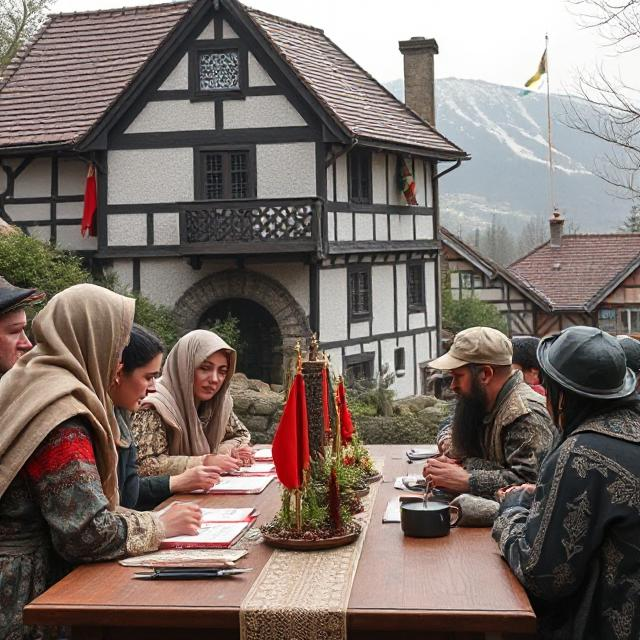
Diplomacy in Households and Communities
Diplomacy is not just for governments or world leaders.
Humans have also created forms of diplomacy in their daily lives, especially within households and communities.
These methods help people live peacefully, solve problems, and support one another. Below are some common types of diplomacy used in homes and local groups.
“Household diplomacy” resolves household conflicts. In families, diplomacy is key to keeping relationships strong. One type is "communication diplomacy". This means family members talk openly and listen to each other’s needs.
For example, parents might discuss chores with children to avoid arguments. Another type is “compromise diplomacy”. When family members disagree—like choosing a movie to watch—they take turns or find a solution that works for everyone.
"Emotional diplomacy" is also important. Family members show care and understanding during tough times, like comforting someone who had a bad day.
Lastly, “role-based diplomacy” involves parents teaching children values like respect or sharing. This helps kids learn how to interact kindly with others.
“Community diplomacy” works for common good. In neighborhoods or villages, people use diplomacy to maintain harmony.
“Mediation diplomacy” is common. When two neighbors argue over a fence or noise, a respected community member might step in to help them find peace.
“Negotiation diplomacy” happens when groups with different interests work together. For instance, a town might negotiate where to build a park so all areas benefit.
"Cultural diplomacy" brings people together through traditions. Festivals, shared meals, or storytelling events help communities bond and respect each other’s backgrounds.
"Resource-sharing diplomacy" is another type. Communities might create rules for sharing water, land, or tools to ensure fairness. For example, farmers might agree on schedules to use a common well.
Conflict resolution practices are at work. Both households and communities use “problem-solving circles”. Families might hold meetings to address issues, while villages gather elders to discuss disputes.
‘Apology rituals’ are also a form of diplomacy. Saying “sorry” or offering a small gift can repair relationships after a fight. These practices remind people to value peace over pride.
Household and community diplomacy teach cooperation and empathy. They help people avoid violence, build trust, and create support systems.
Over time, these methods have been passed down through generations, proving their value. Simple acts—like listening, compromising, or sharing—keep families and communities united.
In conclusion, humans have invented many clever ways to practice diplomacy in daily life. By focusing on communication, fairness, and kindness, households and communities ensure a better life for everyone. These small acts of diplomacy make the world a gentler, more connected place.